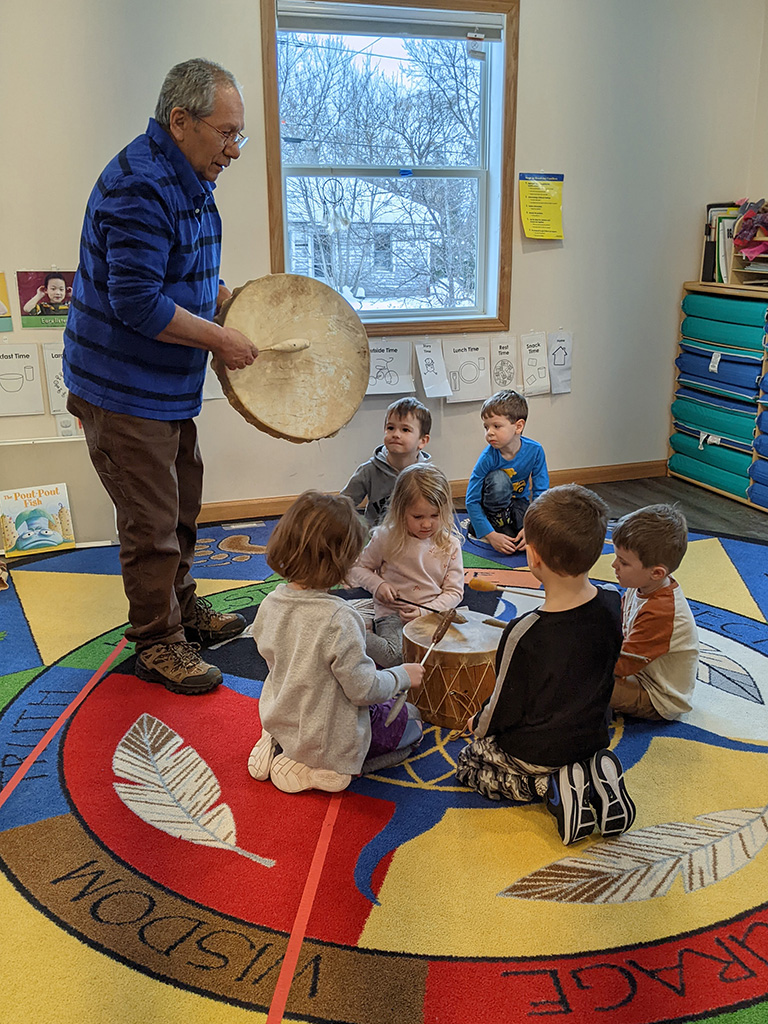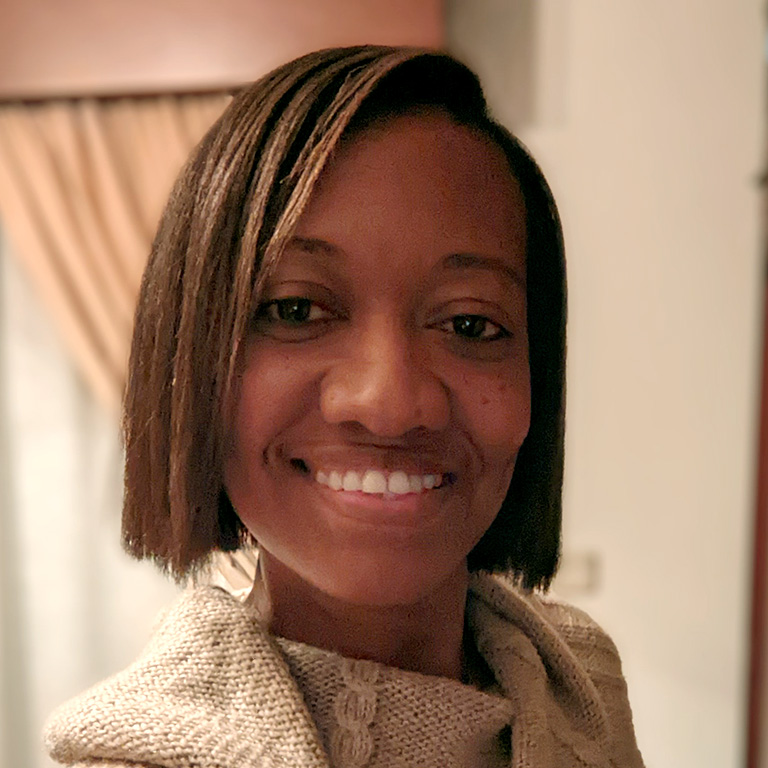“I’ve created a Drawing Club where children are invited to draw and tell stories about their drawings,” Costa said. “Hopefully, the findings of this study will help me advocate for emotionally responsive and therapeutic classrooms for all preschool children, particularly those enduring traumatic and challenging life circumstances.”
Because of her full-time involvement in the Pre-K program, Costa developed a strong relationship with the children, which allows her to have a better understanding of their schooling experience and life circumstances.
“Additionally, this has been a remarkable cultural experience,” she added. “One of the missions of the Pre-K program is to revitalize the Ojibwa culture. To this end, there is an Elder from the community who visits the school twice a week to teach the children the language, cultural values and traditions of the Ojibwa community. Thus, I’m learning these aspects of the Ojibwa culture alongside the children.”
Before coming to the IU School of Education, Costa worked at the Child Development Lab (CDL) at Arizona State University, where she was the lead teacher of a multi-age preschool classroom for eight years. When she discussed my idea of getting a Ph.D. with the former director of CDL, he told her about Professor Cary Buzzelli at the IU School of Education.
“After a phone interview with Professor Emeritus Cary Buzzelli and Professor Mary McMullen, I became very interested in the graduate program in early childhood education, and I wanted to be part of this vibrant school. I’ve applied for the Ph.D. program, and I was accepted. This is how my journey at IU began,” Costa said.
Her interest in addressing childhood trauma stems from the fact that it is a public health issue in the U.S. Studies have reported that in the U.S., 62% of all children who come to school are experiencing some type of trauma - particularly now when children's lives have been greatly disrupted by the shared traumatic experience of the COVID-19 global pandemic. Costa added there have been numerous challenges to young children’s health and well-being that must be acknowledged and addressed to ensure children’s school success.



